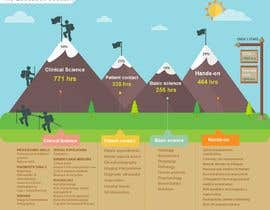Comprehending Nourishment'S Function In Back Pain Administration: Beneficial Foods And Foods To Avoid
Comprehending Nourishment'S Function In Back Pain Administration: Beneficial Foods And Foods To Avoid
Blog Article
Created By-Locklear Wheeler
When it pertains to handling your pain in the back, the food choices you make can substantially influence exactly how you feel every day. Visualize having the ability to alleviate your discomfort simply by readjusting what you consume. By recognizing the role of nourishment in back pain monitoring and recognizing which foods to include or steer clear of, you can take proactive actions towards a much healthier and much more comfy way of living. The connection between nutrition and back health and wellness is extra profound than you may realize-- allow's check out exactly how certain foods can either soothe or exacerbate your pain in the back.
Relevance of Nutrition in Pain In The Back
Nourishment plays an important role in managing pain in the back. Your diet plan can dramatically affect swelling levels and general pain degrees in your back. Eating https://what-does-going-to-a-chir39517.blogofchange.com/30882729/discover-the-benefits-of-chiropractic-take-care-of-expecting-mothers-and-how-it-can-enhance-your-total-well-being-past-the-physical-world balanced diet rich in nutrients like vitamins D and K, calcium, magnesium, and omega-3 fats can help reduce inflammation and reinforce bones, which are important for back wellness.
In addition, keeping a healthy and balanced weight through correct nutrition can alleviate tension on your spine, lowering the threat of back pain.
In addition, particular nutrients like anti-oxidants discovered in fruits and vegetables can assist battle oxidative anxiety and promote recovery in the body, consisting of the back muscles and spine.
On the other hand, consuming excessive quantities of processed foods, sugary beverages, and harmful fats can add to inflammation and weight gain, aggravating pain in the back.
Foods to Consume for Back Wellness
To support a healthy back, incorporating nutrient-rich foods right into your day-to-day meals is crucial. Consisting of linked web site in anti-oxidants like berries, spinach, and kale can help in reducing inflammation in your back, reducing discomfort and pain. Omega-3 fatty acids located in fatty fish such as salmon and mackerel have anti-inflammatory homes that can benefit your back wellness.
Furthermore, eating nuts and seeds like almonds, walnuts, and chia seeds gives vital nutrients like magnesium and vitamin E, which sustain muscle function and reduce oxidative stress. Including lean healthy proteins such as poultry, turkey, and tofu can help in muscle mass repair and maintenance, advertising a strong back.
Do not neglect to include dairy or fortified plant-based choices for calcium to support bone wellness. Last but not least, moisten with plenty of water to maintain your spinal discs hydrated and working ideally. By including these nutrient-dense foods in your diet plan, you can nourish your back and support total spine health and wellness.
Foods to Avoid for Pain In The Back
Select avoiding refined foods high in added sugars and trans fats when looking for relief from neck and back pain. These types of foods can add to swelling in the body, which may exacerbate back pain. Say no to sugary snacks sweet, breads, and sugary beverages, in addition to convenience food products like hamburgers, french fries, and fried hen that are often loaded with trans fats.
Additionally, avoid foods including high levels of refined carbohydrates, such as white bread, pasta, and pastries, as they can spike blood sugar degrees and potentially intensify inflammation in the body.
It's also a good idea to limit your consumption of foods high in saturated fats, like red meat and full-fat milk items, as they can contribute to swelling. Processed foods like delicatessens meats, chips, and packaged snacks are usually high in hydrogenated fats and need to be eaten in small amounts.
Conclusion
To conclude, taking notice of your diet plan and making smart food choices can have a substantial impact on managing neck and back pain. By including nutrient-rich foods like berries, fatty fish, nuts, and lean healthy proteins, and avoiding refined and sugary items, you can help reduce swelling and assistance in general back health. Keep in mind, what you eat plays an important role in exactly how you feel, so make certain to prioritize your nutrition for a much healthier back.
